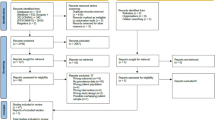Abstract
Background
A growing number of studies report cognitive impairment after chemotherapy; indeed the phenomenon of chemo-fog is now almost universally accepted. We are concerned however that there is little if any consistency in the way in which patients are classified as showing cognitive impairment or not. We aim to demonstrate that different methods of analysis produce markedly different results, making the true extent of impairment unclear.
Methods
We analysed data from 92 breast cancer patients 4 weeks post-chemotherapy and from 42 healthy controls using 7 different methods, each taken from a different research paper in the area of cognitive impairment post-chemotherapy.
Findings
The extent of impairment was dependent on the method of analysis. Impairment ranged from 12 to 68.5% in the chemotherapy group and from 4.8 to 64.3% in the healthy control group.
Interpretation
This brief report highlights the contrasting degrees of cognitive impairment calculated by using legitimate statistical methods and demonstrates the need for a collaborative effort to standardise our methods that we might better understand the phenomenon of chemo-fog.
Similar content being viewed by others
References
Shilling V, Jenkins V, Morris R, Deutsch D, Bloomfield D, The effects of adjuvant chemotherapy on cognition in women with breast cancer – preliminary results of an observational longitudinal study The Breast 2005;14(2):142–150
Ahles T, Saykin A, Cognitive effects of standard-dose chemotherapy in patients with cancer. Cancer Investigations 2001;19
Schagen SB, van Dam FS, Muller MJ, Boogerd W, Lindeboom J, Bruning PF, Cognitive deficits after postoperative adjuvant chemotherapy for breast carcinoma Cancer 1999;85(3):640–50
Wefel JS, Lenzi R, Theriault RL, Davis RN, Meyers CA, The cognitive sequelae of standard-dose adjuvant chemotherapy in women with breast carcinoma: results of a prospective, randomized, longitudinal trial Cancer 2004;100(11):2292–9
van Dam FS, Schagen SB, Muller MJ, Boogerd W, vd Wall E et al., Droogleever Fortuyn ME. Impairment of cognitive function in women receiving adjuvant treatment for high-risk breast cancer: high-dose versus standard-dose chemotherapy J Natl Cancer Inst 1998;90(3):210–8
Wieneke M, Dienst ER, Neuropsychological assessment of cognitive functioning following chemotherapy for breast cancer Psycho-oncology 1995;4:61–66
Desai J, Wagner LI, Beaumont JL, Sweet JJ, Butt Z, Cella D, Cognitive functioning among breast cancer patients prior to chemotherapy Psycho-oncology 2005;14(1S):S32
Jacobson NS, Truax P, Clinical significance: a statistical approach to defining meaningful change in psychotherapy research J Consult Clin Psychol 1991;59(1):12–
Heaton RK, Grant I, C.G. M. Comprehensive norms for an expanded Halstead-Reitan battery: Demographic corrections, research findings and clinical applications. Florida: Psychological Assessments Resources; 1991
Ahles T, Saykin A, Furstenberg C et al., Neuropsychologic impact of standard-dose systemic chemotherapy in long-term survivors of breast cancer and lymphoma. J Clin Oncol 200220:485–493
Tager FA, McKinley PS, Cognitive functioning before chemotherapy treatment in women with breast cancer J Clin Oncol 2004;22(14S):14
Poppelreuter M, Weis J, Kulz AK, Tucha O, Lange KW, Bartsch HH, Cognitive dysfunction and subjective complaints of cancer patients. a cross-sectional study in a cancer rehabilitation center Eur J Cancer 2004;40(1):43–9
Wagner LI, Sweet JJ, Cella D, Havlin KA, Forrestal S, Parrish T et al., Performance of cognitively impaired oncology patients and normal controls on functional MRI tasks J Clin Oncol 2004;22(14S):734
Ingraham LJ, Aiken CB, An empirical approach to determining criteria for abnormality in test batteries with multiple measures Neuropsychology 1996;10(1):120–124
Heaton RK, Temkin N, Dikmen S, Avitable N, Taylor MJ, Marcotte TD et al., Detecting change: A comparison of three neuropsychological methods, using normal and clinical samples Arch Clin Neuropsychol 2001;16(1):75–911
Acknowledgements
We thank the women who participated in the study, all hospital clinic and administrative staff and Roberta Morris for conducting many of the patient assessments. We also thank all of the consultants (Mr Allan, Mr Bishop, Dr Bloomfield, Dr Deutsch, Dr Hodson, Dr Mitra, Dr Sadler, Miss Shah, Dr Stein, Mr Whitehead, Mr Winstanley) and research nurses (Rose Errington, Jayne Hughes, Sonya Mash, Helen Mitchell, Elaine Noon, Victoria Rawlins, Frances Scott), for helping recruit patients to the study. Cancer Research UK funded the study, Dr Shilling and Dr Jenkins.
Conflict of Interest
The authors declare no conflict of interest. Dr Shilling had full access to all the data in the study and had final responsibility for the decision to submit for publication.
Author information
Authors and Affiliations
Rights and permissions
About this article
Cite this article
Shilling, V., Jenkins, V. & Trapala, I.S. The (mis)classification of chemo-fog – methodological inconsistencies in the investigation of cognitive impairment after chemotherapy. Breast Cancer Res Treat 95, 125–129 (2006). https://doi.org/10.1007/s10549-005-9055-1
Published:
Issue Date:
DOI: https://doi.org/10.1007/s10549-005-9055-1




